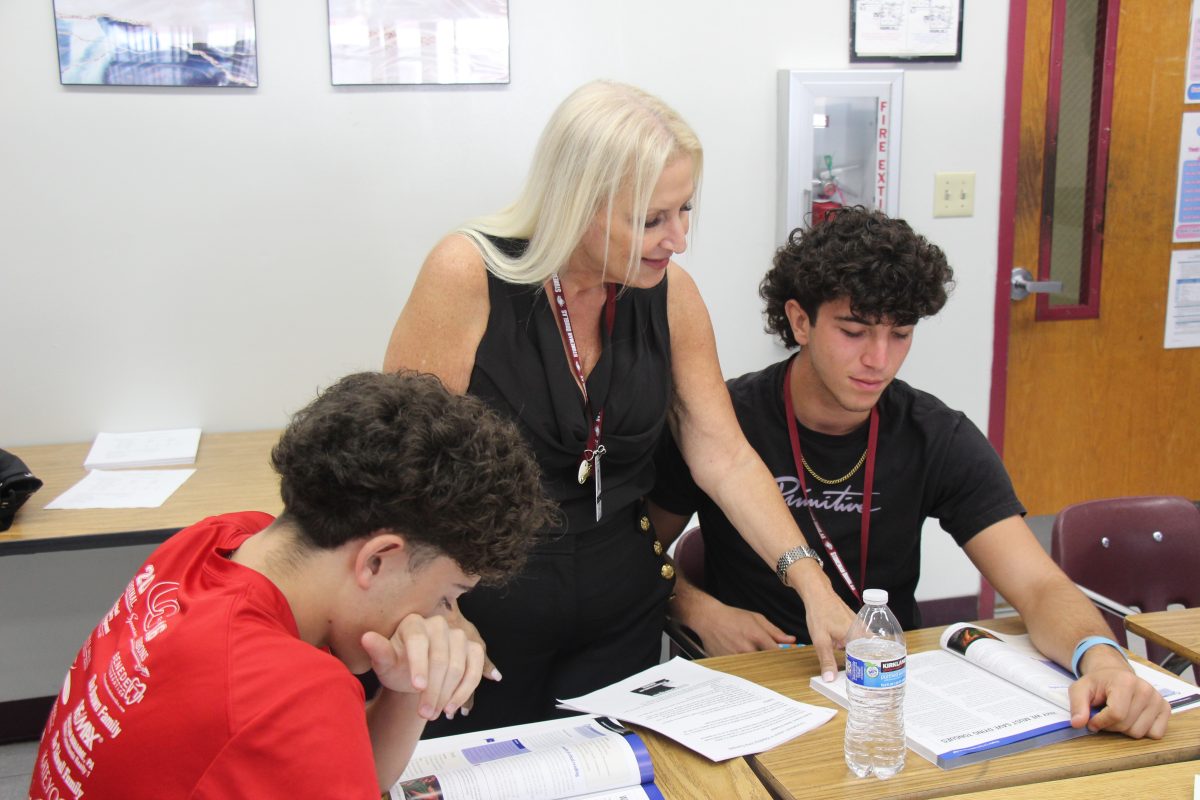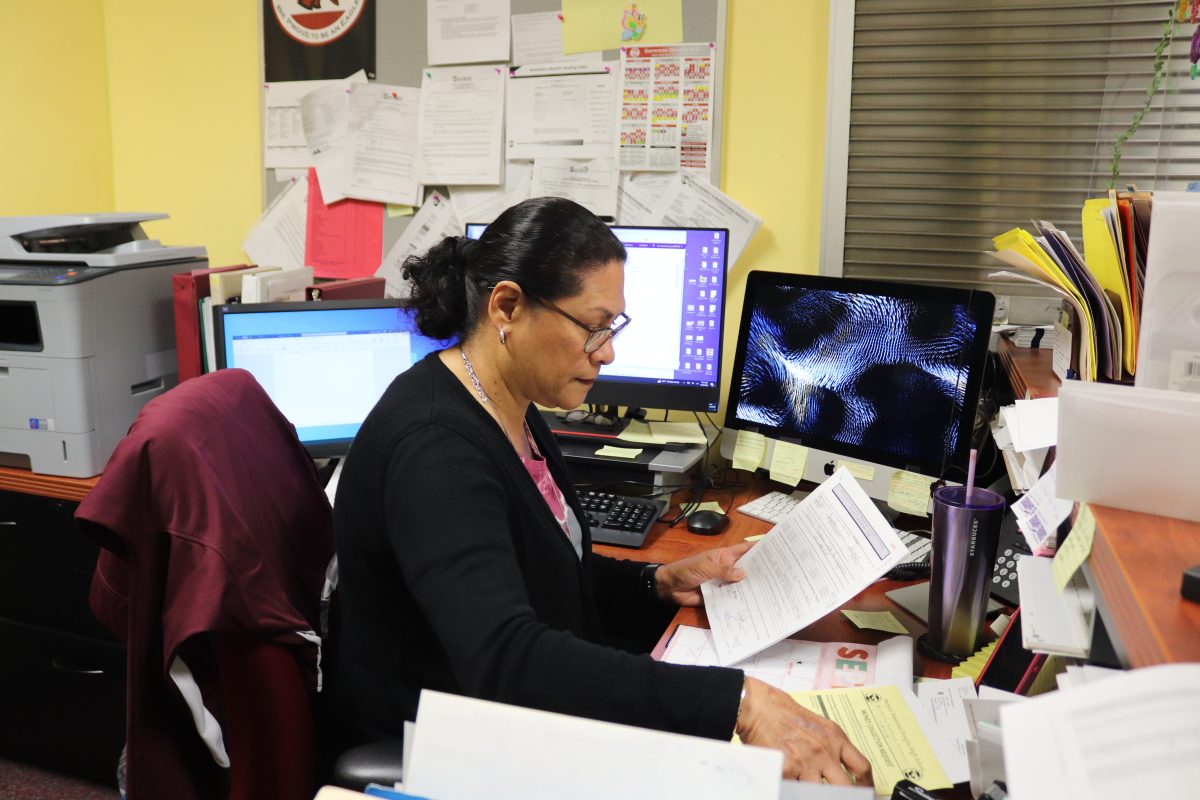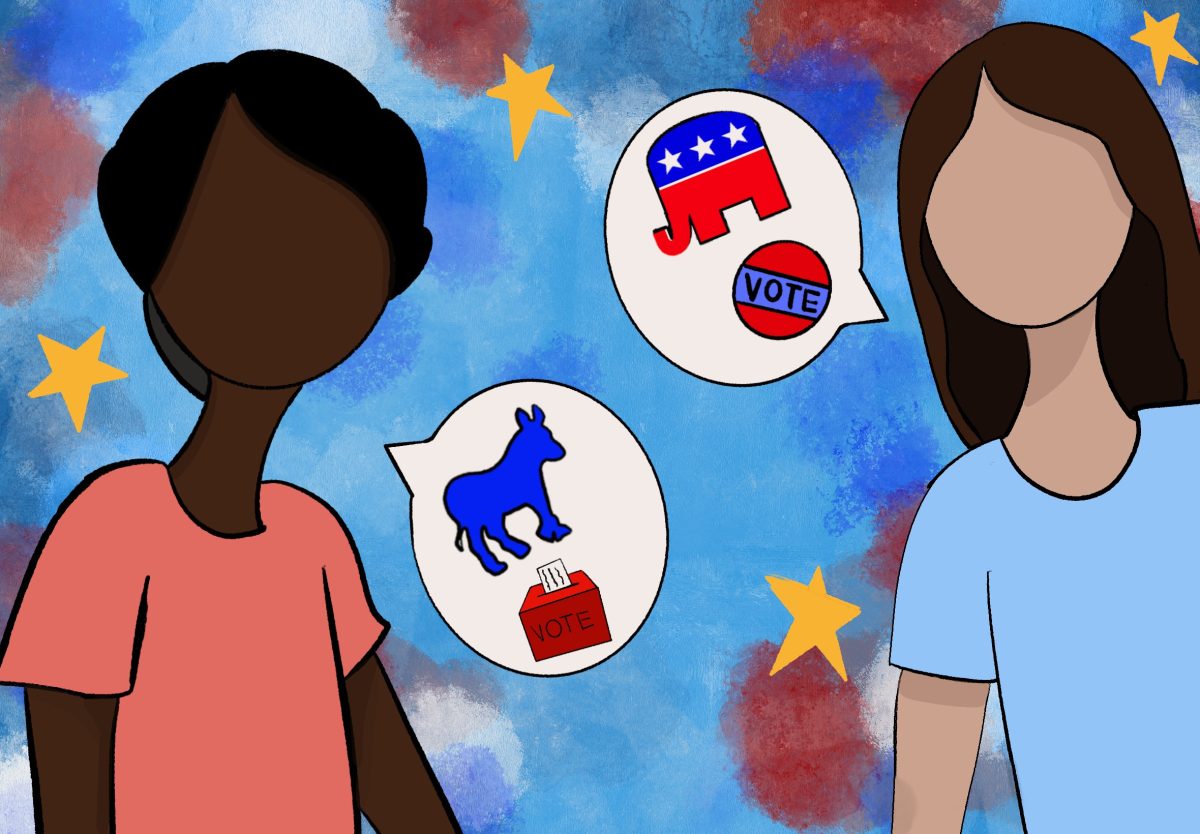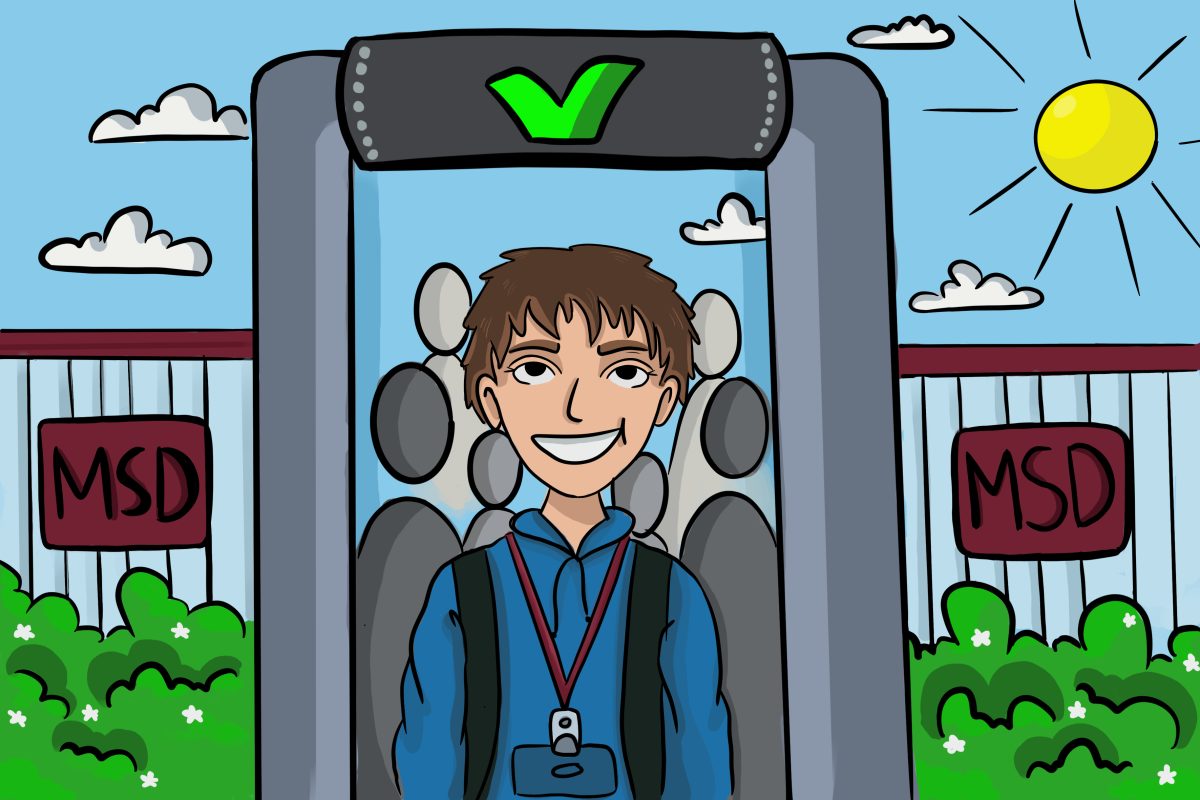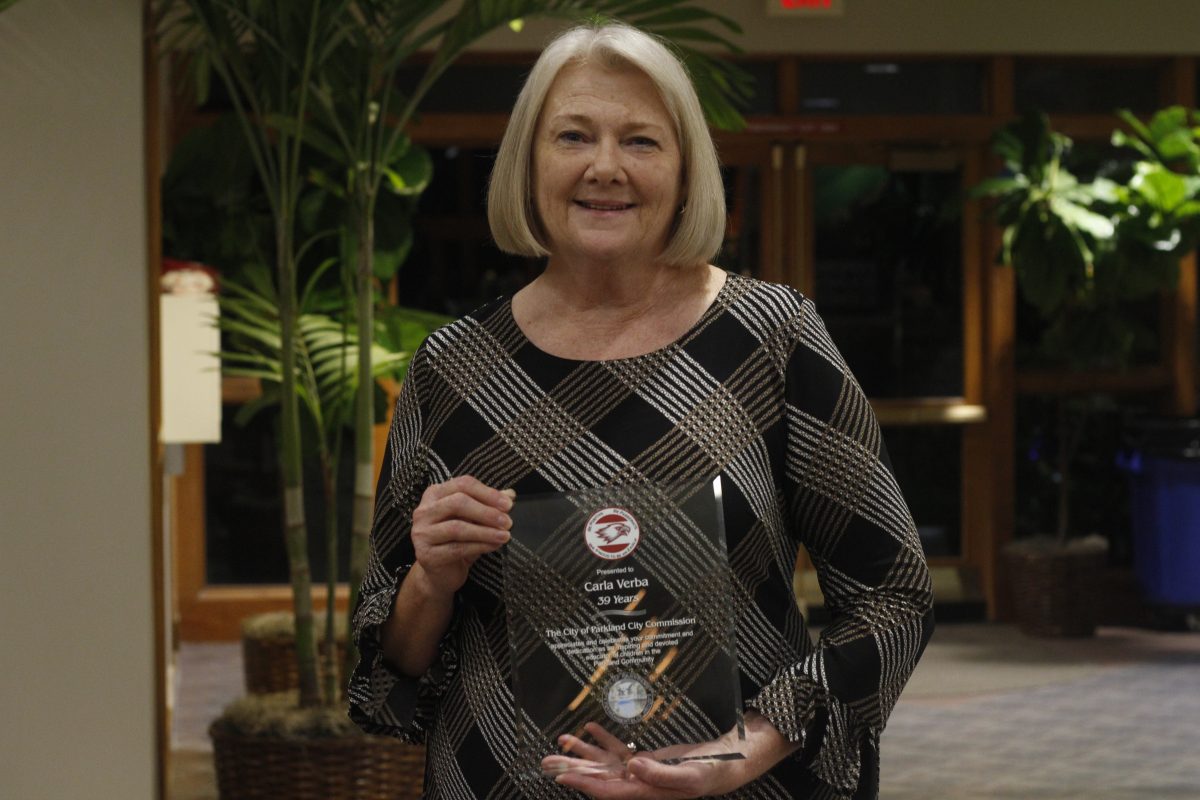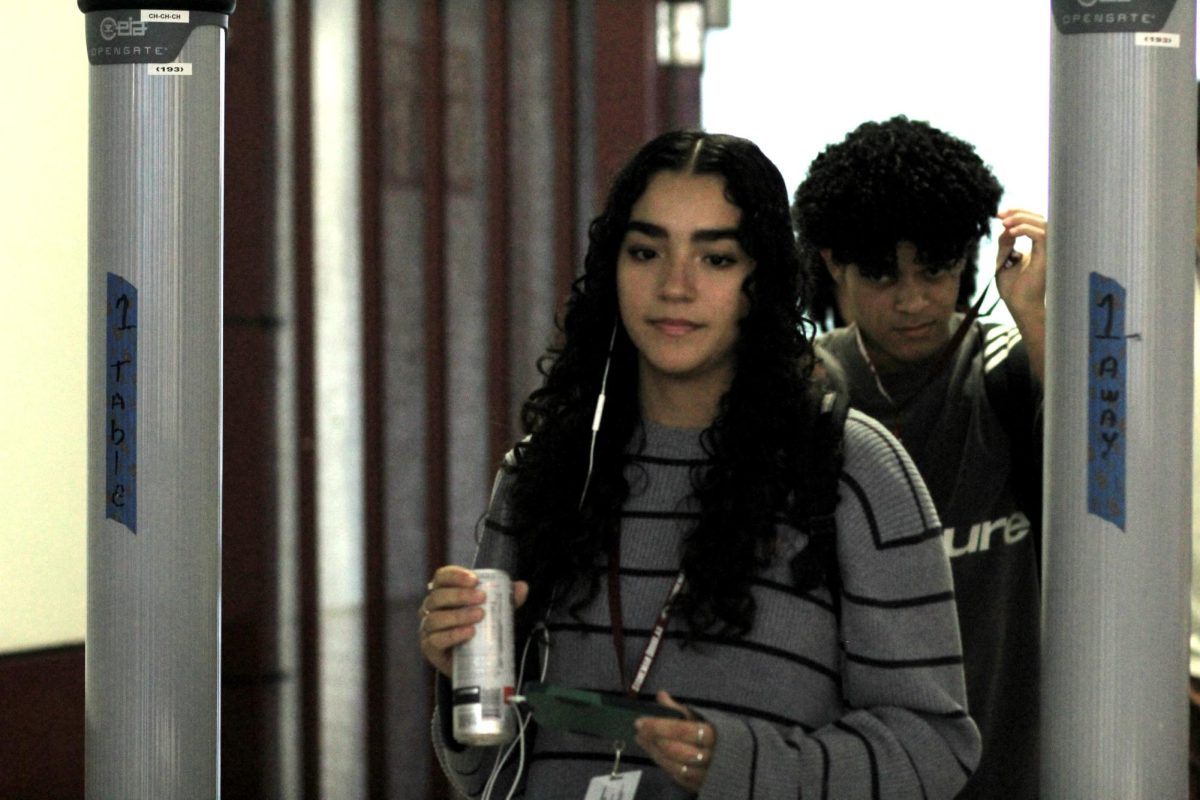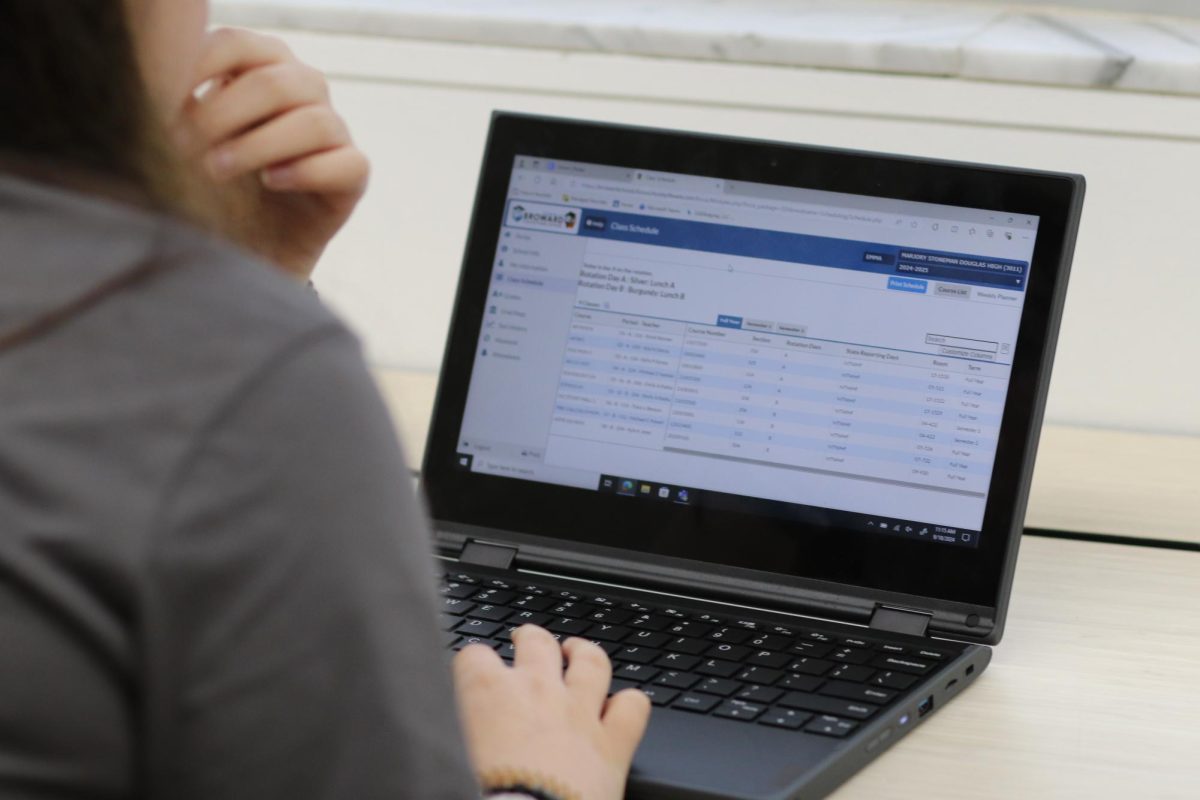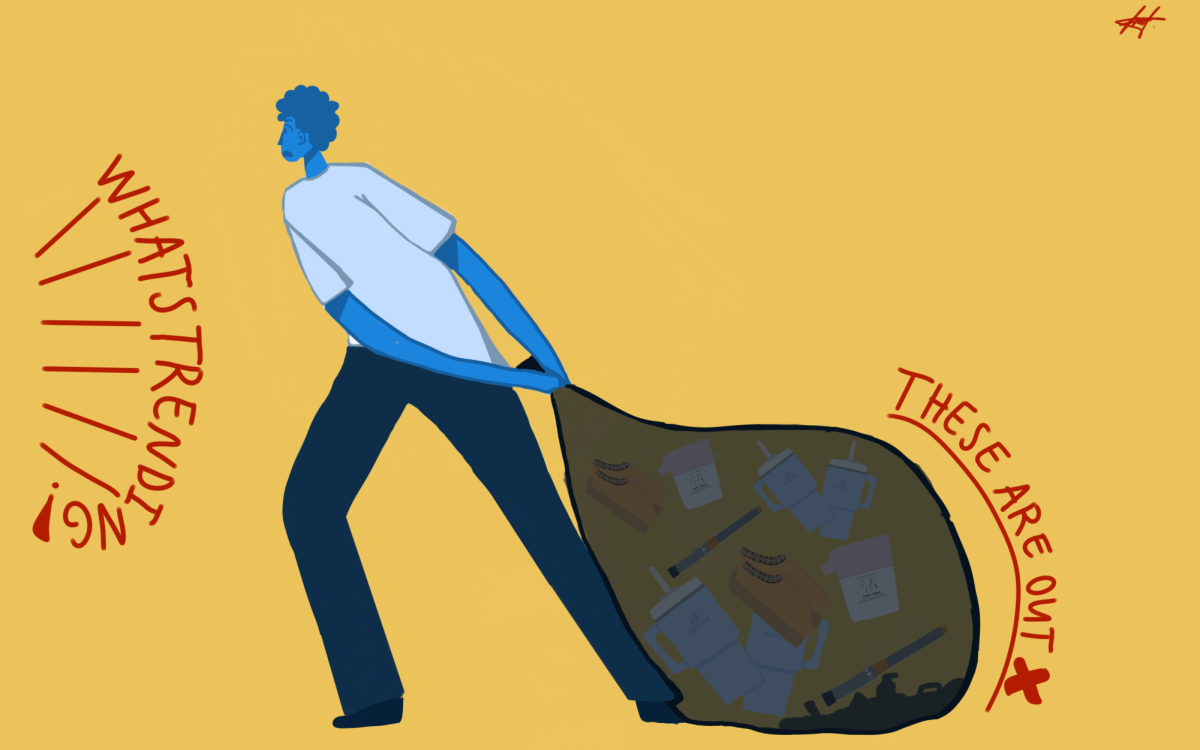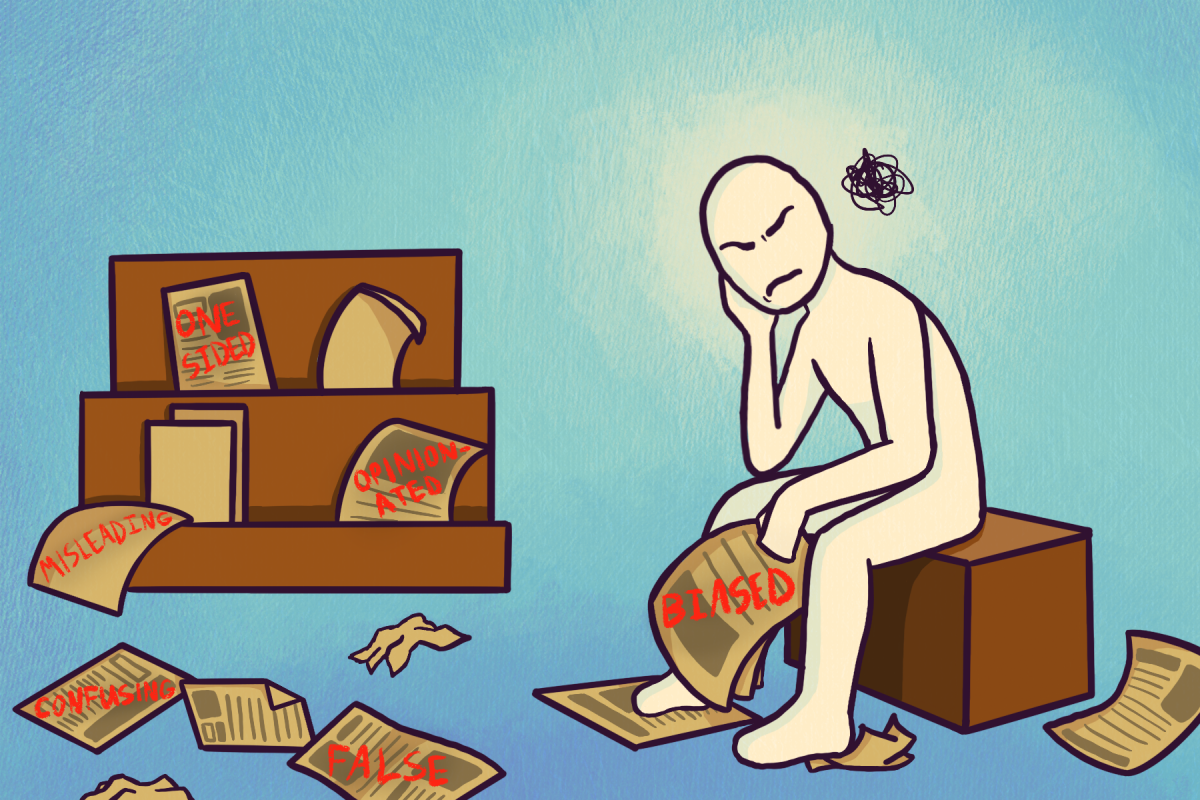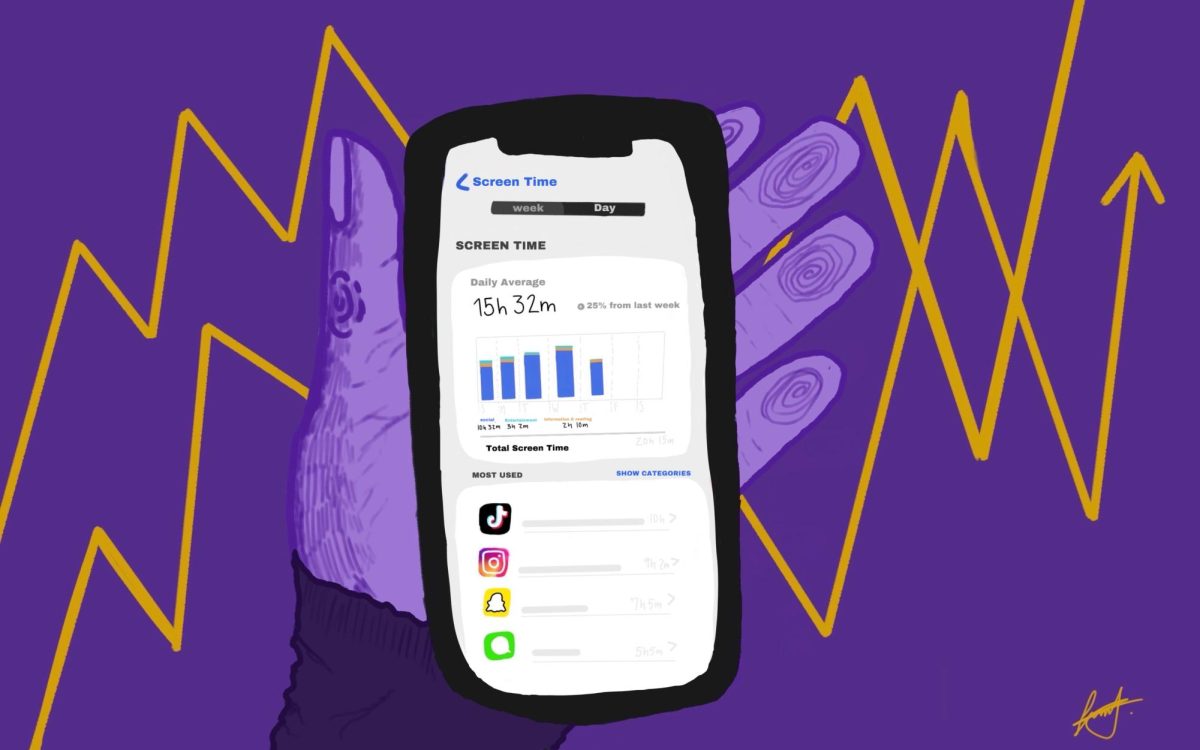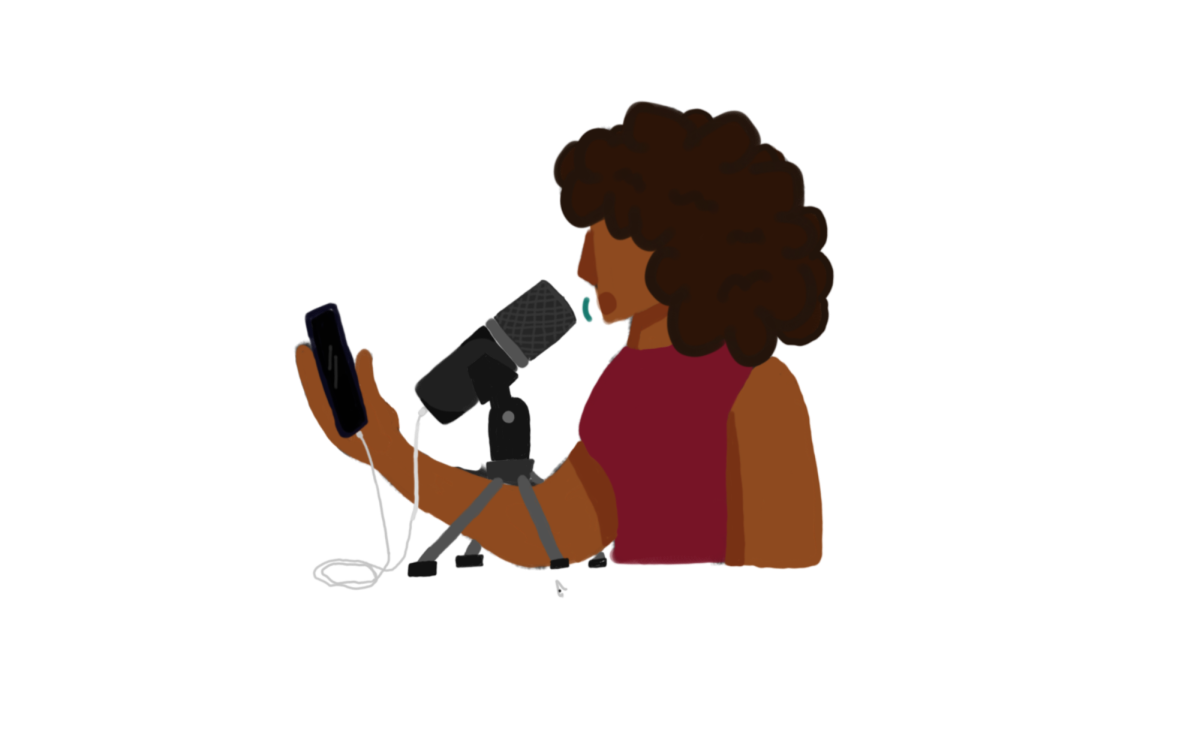His eyes start to close, and his head slowly lowers onto his desk. He drifts off to sleep, dreaming of his bed at home. Yesterday after the school bell rang, he rushed to work a five-hour shift at his job. Once he got home, he helped his parents with chores around the house, and then remembered he had a mountain of homework to get through: math problems, science notes and an essay for English. By the time he finished, it was already 2 a.m. The buzz of his alarm went off at 6 a.m., signaling that it was time to go to school. Like most teens, he does not get the recommended amount of sleep.
Many high school students suffer from sleep deprivation as a result of lack of sleep or poor quality sleep on a regular basis. The causes for sleep deprivation vary, but common causes include stress, school or job commitments and poor sleep habits.
The American Academy of Sleep Medicine recommends that teenagersbetween the ages of 13-18 should regularly sleep 8-10 hours every day.
A 2015 CDC study found that73% of high school students across 30 states do not get enough sleep, which increased 4% from the previous study in 2009. The range of missed sleep varied by state, but the rates of shortened sleep was highest for females, Asian and Black students.
A sleep habit survey of 348 Marjory Stoneman Douglas High School students revealed only 35% of the student body receives the recommended amount of sleep.
Causes of Sleep Deprivation
Though sleep deprivation can be influenced by lifestyle choices, the biology of the body also plays a large role.
As reported by the CDC, adolescents experience a shift in the sleep hormone melatonin during puberty, which results in teenagers feeling tired later at night and needing to sleep later in the morning.
The combination of these biological shifts with poor sleep habits like irregular bedtimes, the presence of electronics in the bedroom and overscheduling often leads to sleep deprivation in teens.
According to the Child Mind Institute, it is not just distractions like social media keeping teenagers up later, but the electronics they use emit a blue light with a specific frequency that sends a signal to the brain that suppresses melatonin production.
When this effect combines with he biological shift in melatonin that teens are already experiencing, their bedtimes shift even later.
Many students have very high levels of screen time, from staring at a computer screen all day at school to using their phones when they get home.
“Most nights I end up not being able to fall asleep, so I end up going on my phone. Then, the more I’m on my phone, the more I end up not being able to sleep,” senior Ethan Leavy said. “No matter how tired I am, from the school day, my band practices, or any other circumstances, this cycle of staying up late and playing on my phone continues.”
Forty-one percent of MSD students expressed that their lack of sleep is partly due to social media and television. Apps like TikTok and even FaceTime, in addition to TV shows and movies, distract teens and cause them to stay up later.
“I feel like the time I spend on social media leads to me taking longer to finish my work and thus going to sleep later,” junior Xyen Walker said. “Not only does this affect how much sleep I get in, but in turn it also affects my ability to pay attention and work during the school day. The cycle just continues.”
Health Problems
The negative effects of sleep deprivation affect each teen in different ways. According to the CDC, adolescents who do not receive enough sleep are at a higher risk of having health problems, including obesity and type 2 diabetes.
While we sleep, our bodies are repairing themselves and working to keep us healthy. According to News in Health, a newsletter from the National Institutes of Health, our bodies release hormones to repair cells and control energy use while sleeping. Additionally, heart rate and blood pressure rise and fall, which have been proven to be important to cardiovascular health.
“During sleep your body increases the production and release of something called cytokines,” pediatrician Alan Cotler said. “These cytokines are protective proteins that help fight infection and reduce inflammation and even lower stress. Numerous studies show that people who do not get adequate sleep are more likely to catch a virus and then take longer to recover when they do get sick.”
Students facing chronic sleep deprivation not only have an increased risk of physical health problems, but also have an increased risk of attention and behavioral issues. While most teens are sluggish and unresponsive when tired, some begin to produce symptoms of hyperactivity.
“Due to my heavy workload, I realize that throughout the week, I become more and more tired,” senior Ryan Rowe said. “I stay up late every night, which honestly makes it really hard to find the energy to wake up for school each day and do even more work than the night before.
The negative impacts do not stop at behavior and physical wellbeing; they extend to problems pertaining to mental health and memory. As stated in an article published by Columbia University, people feel better after a good night’s sleep and more irritable or groggy after a poor night’s sleep. Low amounts of sleep have been found to increase negative emotional responses to stressors and decrease positive emotions.
Sleep helps people maintain cognitive skills, which include memory, attention span, learning and more. When students lack sleep, they are more likely to have trouble retaining the information they learned in class that day. Additionally, students have trouble completing their homework because they spent class falling in and out of sleep and are having trouble remembering or teaching themselves the work that night.
Aside from cognitive problems, students also face the risk of mental health disorders, including depression, anxiety and bipolar disorder.
“I feel much more stressed when I have less sleep,” junior Abby DaGrosa said. “When I am running on 3-4 hours of sleep, I work at a much slower pace, making me get behind on all my work.”
While a lack of sleep can worsen an already existing mental health disorder, it can also cause one. According to The Cleveland Clinic, a large loss of sleep, especially over extended periods of time, can cause major disruptions to someone’s mental health.
Time Changes
The American Academy of Pediatrics suggests that middle and high schools should start no earlier than 8:30 a.m., giving students the opportunity to get an adequate amount of rest for the school day and any extracurriculars after.
In the state of Florida, about 48% of all high schools start before 7:30 a.m based on data from the Legislature’s Office of Program Policy Analysis and Government Accountability.
In Broward County, Coconut Creek High School starts the earliest at 6:50 a.m., while Nova High School starts the latest at 9:30 a.m. Most high schools in the county, including MSD, start at 7:40 a.m.
In 2016, Seattle Public Schools shifted their middle and high school start times 55 minutes later. The findings, published in the Science Advances journal, showed a median increase of 34 minutes of sleep for teens in the district.
Taking research into account, the Florida Legislature addressed teen sleep deprivation in 2023 with a bill that requires school districts to push back middle and high school start times by the 2026-2027 school year. Gov. Ron DeSantis signed House Bill 33 into law on May 5, 2023.
As a result of the new law, middle schools will not be able to start earlier than 8 a.m. and high schools will not be able to start earlier than 8:30 a.m. The purpose of the legislation is to ensure that all students receive more sleep each night.
“Coming from someone who is in classes with a heavy workload I find myself staying up late almost every night,” senior Connor Benson said. “After a long night of work the hardest thing to do is find at least two hours of rest so when I wake up before 6 [ a.m.] I am somewhat awake. By starting schools later it is going to be a lot easier for students to feel energized and ready for the long school day ahead of them.”
Not everyone supports the time change.
“I understand why they are changing the times,” AP Government teacher Jeffrey Foster said. “There have been numerous studies supporting the decision. I don’t love it. I prefer to start early and get out early. Kids doze off during all periods of the day. I do not think the start time has anything to do with it.”
Implications
Broward County Public Schools has not announced its plans for changing school start times. As discussed in a Sept. 5 Sun-Sentinel article, district officials plan to lobby in Tallahassee for legislators to introduce a new bill that would allow local school districts to determine their own start times and have already contracted with a lobbying firm to take up their cause.
BCPS is reluctant to change to later start times, as county buses are already scheduled around the staggered school start times.
At MSD, buses arrive at school around 7 a.m. Then, the buses go to pick up elementary school students in the area, whose start times are between 8 a.m. and 8:30 a.m. This leaves time for buses to drop off middle school students to school by 9 a.m.
Rerouting the bus routes would mean that this system of organization would have to be completely redone, requiring extensive effort from district officials to implement.
“This would definitely increase transportation costs: it would mean more routes and more drivers,” district spokesman John Sullivan said in the Sept. 5 Sun Sentinel article.
Additionally, the district has been experiencing a bus driver shortage for the last few years.
The later high school start times would mean elementary and middle school times would need to be changed as well. Earlier ending times for younger students mean that parents who work full time might have to arrange before or after school supervision for their student depending on the start time changes.
For example, if a student needs to wait until 5 p.m. for their parents to pick them up after work, aftercare coverage would need to be adjusted to fit these times. This could require additional costs from the parents, as well as adjustments made by the school to ensure the necessary staff and resources are available at the appropriate times.
For high school students, later start times could give the benefit of more sleep, but could impact after school activities.
Changing MSD’s start time to 8:30 a.m. would mean school would end at 3:30 p.m. instead of 2:40 p.m. pushing back club meetings and athletic practices and games to later in the afternoon.
“I don’t like the fact that school start times will be scheduled later because I have a lot to do after school that takes up a lot of time,” sophomore Breanna McWilliams said. “With the early start time for high school, I have more flexibility in my schedule, and I’m willing to wake up this early to do so.”
Solutions
While changing school times has the potential to help reduce sleep deprivation among teens, there are also individual steps students can take to help improve their sleep habits.
The CDC recommends setting regular bedtimes and wake times and sticking to them, even on the weekends. Creating a consistent sleep schedule will improve one’s circadian rhythm overtime, which will make a healthy cycle of sleep.
The CDC also recommends dimming room lighting as bedtime approaches and setting a media curfew for technology. This reduces exposure to blue light and helps signal to your body that it’s time to sleep.
“Trying to improve your sleep routine and habits can help you be successful at improving your sleep, “ Dr. Cotler said. “This includes putting away electronic devices for at least 30 minutes prior to bed. Staring at screens decreases natural melatonin production in your body, and the countless ‘rabbit holes’ and videos you watch keeps your brain too stimulated to relax.”
It could even help to sleep with your phone outside the bedroom, charging elsewhere.
Additionally, companies have created apps that provide different ways for people to maintain a better sleep schedule and receive better quality sleep overall. There are apps that track your sleep habits. Apple has implemented screen time schedules for iPhone users, which allow people to turn off certain apps at night and keep them off until the morning.
It remains to be seen how the new legislation will impact MSD students. With three years left until BCPS must implement these changes, it is up to students to balance their time to get the adequate amount of sleep.
This story was originally published in the December 2023 Eagle Eye print edition.

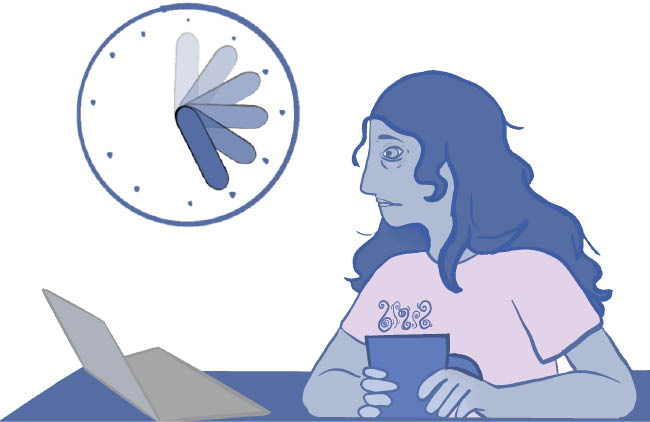


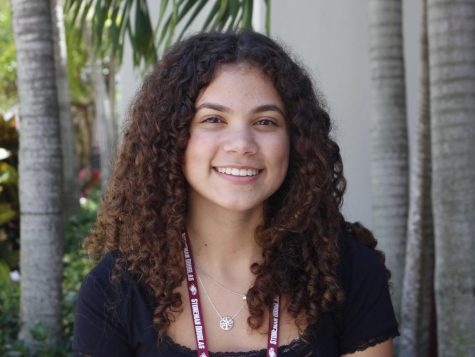


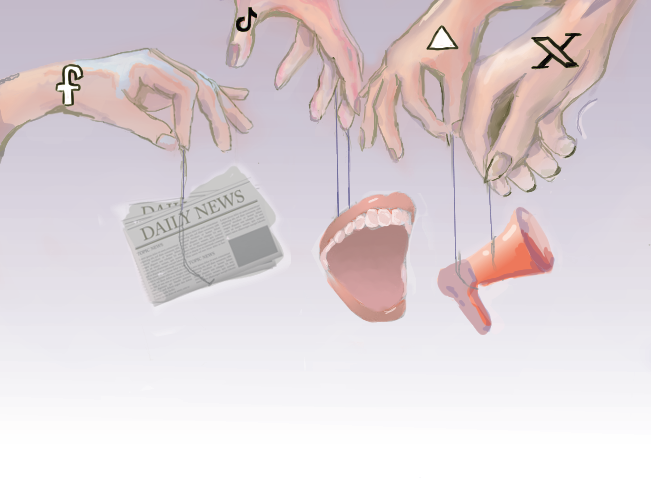


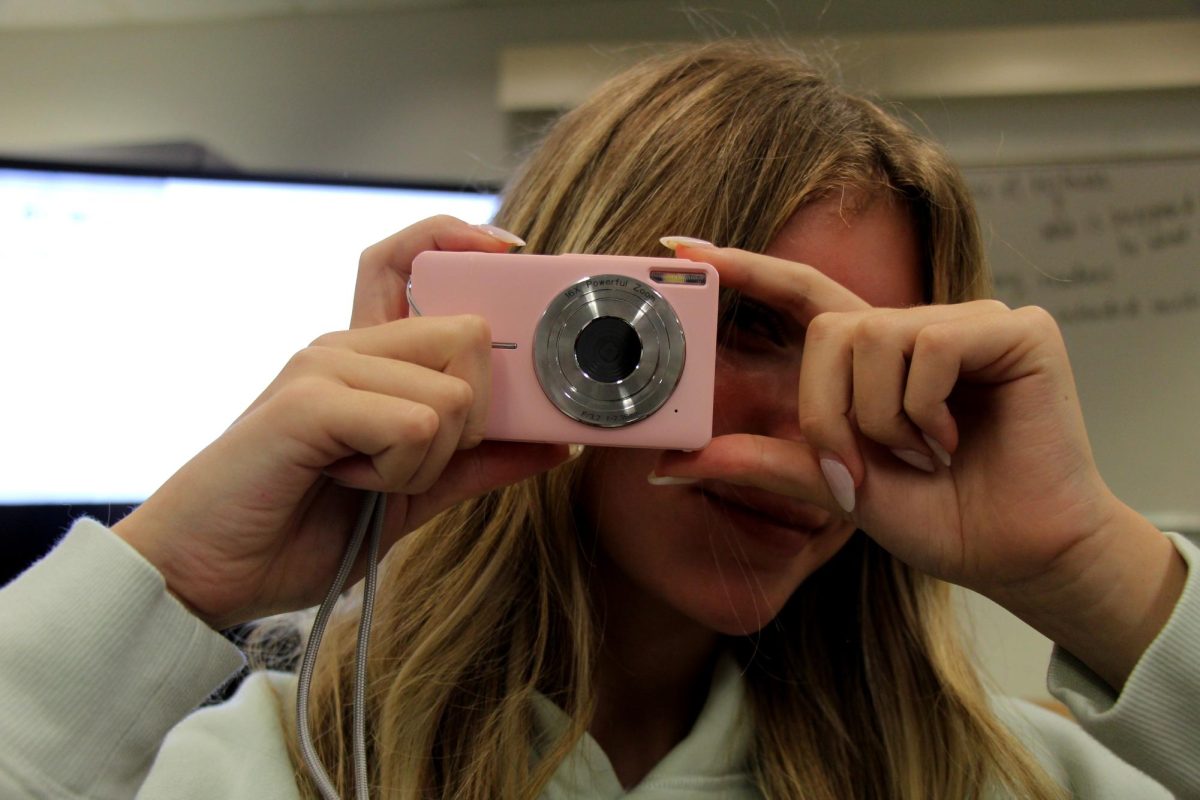

![National Honor Society Sponsor Lauren Saccomanno watches guest speaker Albert Price speak to NHS members. National Honor Society held their monthly meeting with Price on Monday, Nov. 4. "[Volunteering] varies on the years and the month, but we have started a couple new things; one of our officers Grace started a soccer program," Saccomanno said. "We have been able to continue older programs, too, like tutoring at Riverglades. NHS's goal is to have as many service projects as possible."](https://eagleeye.news/wp-content/uploads/2024/11/xNOeKNVwu7aErpVyJHrHogagZUUcLLosjtbIat94-1200x900.jpg)

![Ice Ice Baby. Skating to "Waltz" and "Romance" during her long program, figure skater Ava Zubik competes at the Cranberry Open in Massachusetts on Aug. 12, 2022. She scored a total of 86.90 on her short and free skate program, earning fifth place overall. "I try to make it [competing] as fun and enjoyable as I can because it's my senior year, and so I want to really enjoy competitive figure skating while it lasts," Zubik said.](https://eagleeye.news/wp-content/uploads/2024/11/skater1-799x1200.jpg)


